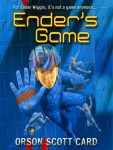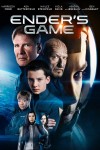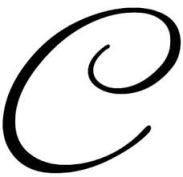Ender’s Game
Humanity has beaten back the alien attack once before but they’re about to have to do it once again. On earth, a small child is tapped to go to battle school after passing preliminary tests regarding his command suitability. Once there, he accelerates through the ranks. Will he be the one to lead the fleet against the Bugger invasion? Or will he crack under the pressure of being humanity’s last hope? It’s all just a game…until it isn’t…in Ender’s Game.*
*I’ve decided to try to start opening these reviews with paragraphs that read like over-the-top “In a world” style trailers. It’s amusing to see how much I can type without laughing.
Book Discussion

Author: Orson Scott Card (Speaker for the Dead, Pathfinder)
Published: 1985
This is a book I hold near and dear to my heart because it was tied into my early teaching career. I actually didn’t read it until I found a classroom set in the English closet at my first school and decided I was going to try it with my Technical English class. Many of them loved it. The elements of military strategy, being passed over due to age, and general science fiction appealed to me the most. I had several kids tell me it was one of the few books they’d finished up to that point in their school career. The movie came out in November of the first year I taught the novel and I took a group of students to go see it. I tried to talk to them about expectations and how books and movies aren’t going align perfectly but that still didn’t stop their outrage as the movie credits rolled. I still remember some students sitting by me at Taco Bell afterwards, recounting all the ways the movie ruined the book as I tried to hide a smile behind soft-shell tacos.
This book is well-written, especially the dialogue. I’ve heard some people complain about how the children in this book are far too well-spoken and intelligent to be believable but I think Card is more focused on getting across the point that children/teens are capable of more than we give them credit for. That was a point we always talked about in class. How some kids are lucky enough to have responsible adults in their lives who make decisions while others sometimes have to be in charge of a family before they’re a teenager because there’s no one else to do it. That point resonated with my students and that’s why I think it’s an effective tactic here.
Orson Scott Card also did a great job showing how the pressure of always being right and never making mistakes can wear down someone’s psyche. Another point that resonated with some students who feel too much pressure to be the best at everything they’re doing. People complain about students being lazy and there’s no arguing that some are, but there are also plenty that feel an inordinate amount of pressure and start cracking at the seams.
Movie Discussion

Director: Gavin Hood (X-Men Origins: Wolverine, Rendition)
Screenwriter(s): Gavin Hood (Tsotsi, In Desert and Wilderness)
Debut: 2013
I enjoyed this movie when I saw it in theaters. Despite my students’ reservations, I knew that some things were going to have to cast along the wayside in order to make the film effective. The aliens in the movie are called the “Formix” as opposed to “Buggers” which I’m sure was a result of the latter term taking on some fairly offensive connotations.
One of the biggest issues I had was the portrayal of Bonzo. In the book, Ender gets transferred to his first squad not long after arriving at Battle School. His squad leader, Bonzo, becomes an enemy when Ender quickly proves that he’s a smarter warrior and commander. The whole conflict between their characters is that Bonzo is this bigger kid who keeps getting outsmarted by Ender. In the movie, Bonzo is played by Moises Arias who does a credible acting job. My problem is the lack of physicality. Bonzo is significantly shorter than Ender* (Asa Butterfield) in the movie and this makes it hard to buy Bonzo as any sort of intimidating figure. Ender is both bigger and smarter than him in the movie. Look at this photo from the film. To get Ender to his eye-level, Bonzo is forced to throw a towel around his neck and awkwardly pull him down. If you look at any other photos of them together you’ll see the contrast though the movie (obviously) tries to hide it. It’s not a huge issue, but I definitely noticed it right away while watching it. Again, I’m not advocating that anyone under a certain height get the boot from Hollywood. I’m simply saying that this role seemed somewhat lessened based on the physicality of the actor who was cast.
*And Asa is no giant himself.
Another difference was the speed at which Ender moved through battle school. In the book, Ender makes his way up over the course of a multitude of battles as the adults in charge try to throw unexpected things at him to make his squad lose. In the movie, this is covered in the course of only a few battles. Often the movie would take two or three different strategies that Ender developed over a longer period of time in the book and squeeze them all into one battle. I understood that this was done in order to cut time in the movie, but I thought that battle school was the coolest part of both the book and movie so I wouldn’t have minded it getting more time.
The other big change was that the roles of Ender’s brother and sister in the movie were cut significantly. In the story, Ender’s older brother Peter is a bit of a psychopath, torturing Ender physically and mentally when he is young. His sister, Valentine, loves her younger brother and protects him the best she can from Peter. In this futuristic society, families who decide to have more than two children risk those children being societal outcasts but the government saw traits in both Peter and Valentine that they wanted for a commander so they asked his parents to have another child in the hopes that these traits might be combined in Ender.
The novel has a whole chapter devoted to Peter and Valentine apart from Ender. After Ender leaves for battle school, his two siblings use the internet to become anonymous political savants. They refine their writings and eventually find that they’re influencing politics with what they write as these two anonymous online entities. It was kind of an interesting 80’s take on what people would eventually do repeatedly on the internet: Pretend that they’re someone they’re not. The movie skips over this and while, it was interesting in the book, I don’t think it detracted from the story to have it cut. Especially as I don’t believe there was any plan to make sequels based on the book’s sequels and companion novels, despite the movie and film’s somewhat ambiguous ending.
Overall, I was fairly pleased with this adaptation. A “C” isn’t a bad grade from me. I enjoyed most of the performances (particularly Harrison Ford’s) and thought the main focus of the novel translated well into film format.

Next week I’m talking about Tolkien again. How exciting for everyone! An ode to Fellowship of the Ring and I want you all to know that I’ve been re-watching all of the behind-the-scenes stuff in the appendices. WOOOOOOOOOOOO!
Woo!
– Ethan